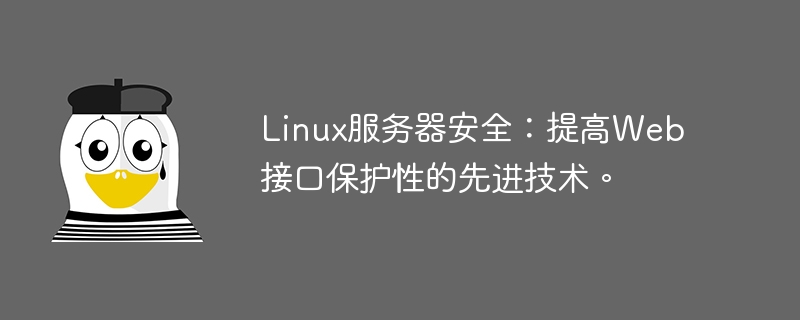

Linux Server Security: Advanced Technology to Improve the Protection of Web Interfaces
In today’s digital age, security is extremely important. Especially for Linux servers hosting multiple web applications, ensuring that the web interface is protected is particularly critical. This article will introduce some advanced technologies and methods to improve the security of web interfaces on Linux servers, and attach relevant code examples.
iptables -A INPUT -s 192.168.0.0/24 -p tcp --dport 80 -j ACCEPT iptables -A INPUT -s 192.168.0.0/24 -p tcp --dport 443 -j ACCEPT iptables -A INPUT -p tcp --dport 80 -j DROP iptables -A INPUT -p tcp --dport 443 -j DROP
server {
listen 443 ssl;
server_name example.com;
ssl_certificate /etc/letsencrypt/live/example.com/fullchain.pem;
ssl_certificate_key /etc/letsencrypt/live/example.com/privkey.pem;
location / {
// 其他设置
}
}http {
// 其他设置
upstream backend {
server backend1.example.com;
server backend2.example.com;
}
server {
listen 80;
server_name example.com;
location / {
proxy_pass http://backend;
proxy_set_header Host $host;
proxy_set_header X-Real-IP $remote_addr;
// 其他设置
}
}
}http {
// 其他设置
server {
listen 80;
server_name example.com;
location / {
ModSecurityEnabled on;
ModSecurityConfig modsecurity.conf;
// 其他设置
}
}
}With the increasing development of the Internet, protecting the security of Web interfaces has become particularly important. By using advanced technologies and methods such as firewalls, SSL certificates, reverse proxies, web application firewalls, and regular updates and patches, the protection of web interfaces on Linux servers can be greatly improved. Hopefully these sample codes will help you better secure your servers and web applications.
The above is the detailed content of Linux Server Security: Advanced Technologies to Improve the Protection of Web Interfaces.. For more information, please follow other related articles on the PHP Chinese website!




